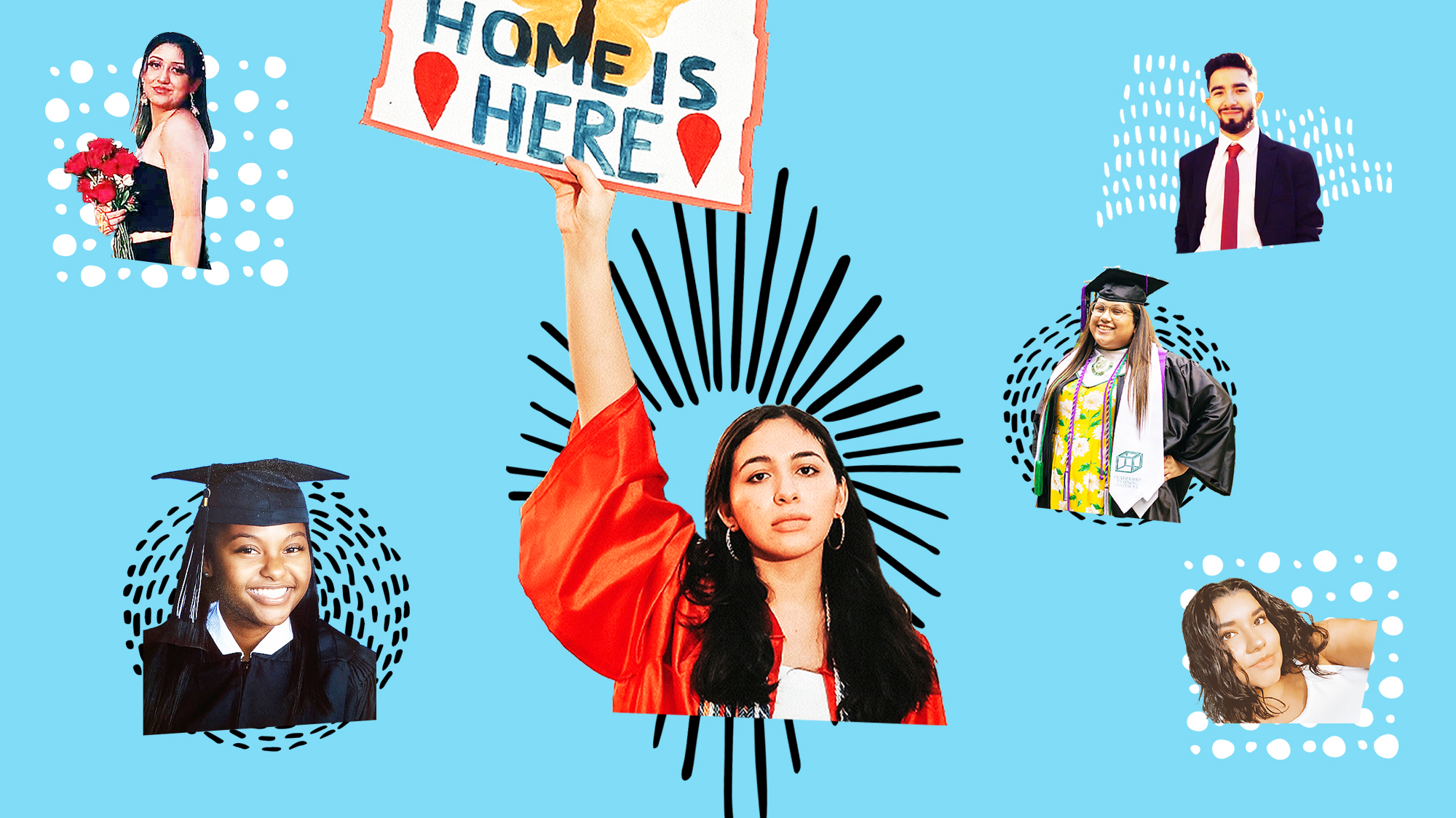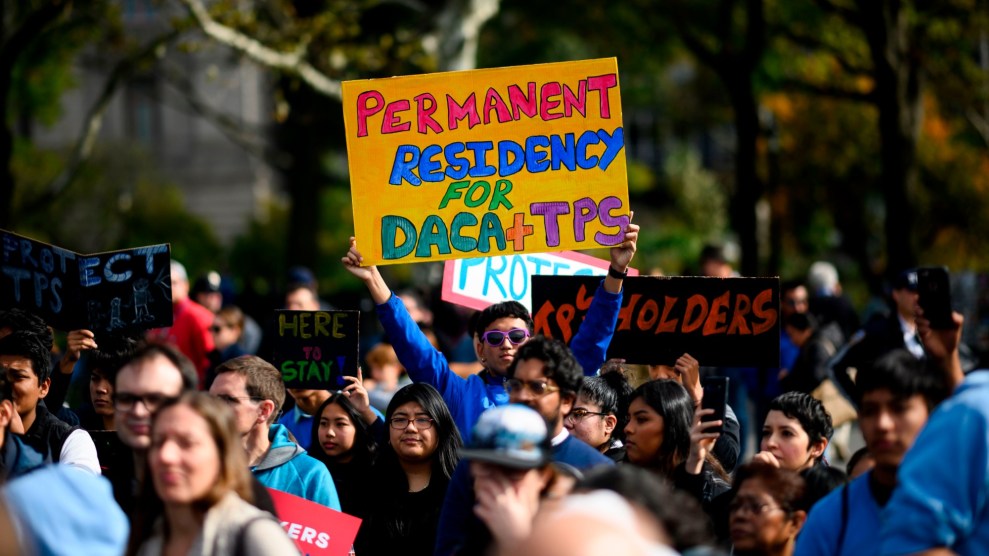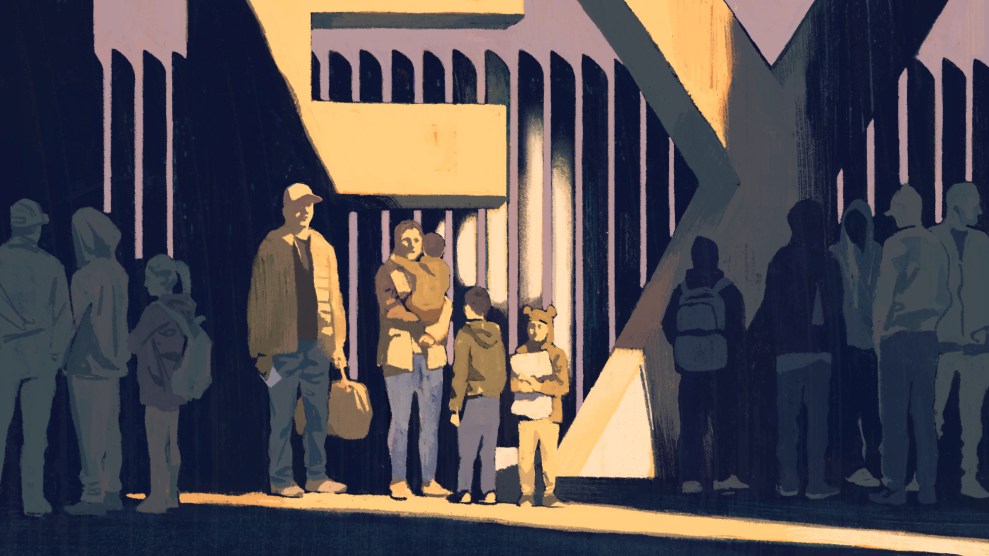June 15 marks the ninth anniversary of the Obama-era Deferred Action for Childhood Arrivals (DACA) program, which grants temporary relief from deportation and the right to work for undocumented immigrants who arrived in the United States as children. In almost a decade, more than 800,000 young people from dozens of countries have benefited from the program, even as DACA, which doesn’t provide a path to citizenship, has been constantly under threat from legal challenges and political changes. As a result of the turmoil, thousands of recipients and eligible applicants have been in limbo despite having lived and studied most of their lives in the United States.
In September 2017, the Trump administration moved to rescind DACA and halted all new applications. Several lawsuits followed, and in June 2019 the Supreme Court agreed to review the cases. One year later, the justices ruled 5–4 in favor of Dreamers finding the unlawful termination of the program was “arbitrary and capricious,” while nonetheless, still leaving a door open for the government to end it legally. In the aftermath of the decision, the Trump administration attempted to limit the scope of DACA pending a legal review, but a federal judge in New York invalidated the rules on a technicality by determining that then Department of Homeland Security Acting Secretary Chad Wolf’s appointment was unlawful at the time. The December order reinstated DACA and allowed for new applications to be considered for the first time in several years. US Citizenship and Immigration Services received around 2,700 initial petitions between mid-November and December 31, 2020.
“These are young people who were in high school or about to graduate and coming of age right around the time the Trump administration callously decided to try to end the program,” says José Muñoz of United We Dream, the largest immigrant youth-led community in the United States. He applied for DACA in 2012 at the age of 21. “They’re the same age I was when I applied almost 10 years ago and yet we still don’t have the certainty that DACA will not be taken away.”
In March, the House passed the American Dream and Promise Act, which would provide a path to citizenship for as many as 2.5 million undocumented immigrants, including Dreamers. The bill’s prospect in the Senate looks uncertain, as does the future of DACA. A pending ruling in a federal lawsuit filed by Texas and several other states challenging the legality of the program could strike it down any day now.
On the anniversary of DACA, Mother Jones spoke to six first-time applicants, some of whom have already been approved and others who are still waiting for their petitions to be processed. They come from four different countries and are scattered across the United States. Some were too young to apply for DACA when it first came around; others were too afraid. Here are their stories in their own words:
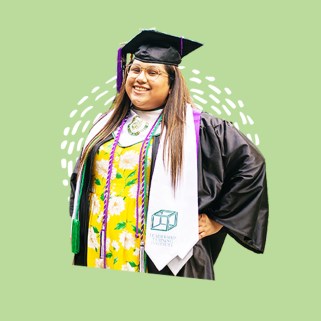
“I felt like I was giving up something I had hidden for so long.”
Andrea Anaya
Age: 19
Country of origin: El Salvador
Lives in: Silver Spring, Maryland
Education: Political Science at Marymount University
Date of DACA application: February 2021
Application status: Pending
I was 5 years old when I came to the United States with my mother. Growing up, my family watched the news a lot, and my mom always cautioned me about being undocumented and what that meant. But I don’t really think I grasped it until I got into high school. It was such a big part of me yet such a big secret.
When I became a teenager, I couldn’t work, I couldn’t get my driver’s license, I couldn’t travel. But I had big dreams and big ambitions. My mom gave up college for me to come here, so I wanted to complete her dreams. When you have hidden such a big part of your life, it’s hard to even reach out and ask for help or start a conversation. I thought: “What is the point of this? I’m not going to be able to go to college.” When I finally did open up to a teacher or a school counselor, they didn’t have anything to tell me or any resources. A lot of it was just me researching on Google and reaching out to people to try and figure out a solution.
During my sophomore year of high school, I got involved with United We Dream. That’s when I really started getting informed about my rights as an immigrant youth in America. I interned for congressman Jamie Raskin (D-Md.) on the Hill and that was a life-changing opportunity—and a little scary. You go from hiding your status to going to Capitol Hill and being around people who do not agree with your presence in the country.
I got into high school when Trump got into office, and I left high school when he left office. I was hearing all this rhetoric against immigrants while trying to figure out what my future was going to be like in an America that was becoming very anti-immigrant because of the administration in office.
I wasn’t able to apply for DACA when I was in high school. When I could last December, the question became: How am I going to pay for it? The application itself costs around $500 but that doesn’t include lawyer’s fees. One of my friends started a GoFundMe page and a lot of community members helped out. When you’re applying for DACA, you have to report everything. It’s hard because you don’t have paperwork, and all of a sudden you have to prove that you’ve been in the United States for all these years. For the first time, I gave my information to the immigration services, and I felt like I was giving up something I had hidden for so long. Not only did I expose myself; I exposed my family.
People don’t realize how being undocumented runs deep. When the pandemic came, my family was really worried because we couldn’t apply for unemployment or government aid. Most importantly, we couldn’t just go to the hospital if we were to get COVID because of the immense amount of bills that we were going to have to pay. Then when the vaccine came around, even though I had read that it would be free, my mom and my grandma were like: “Well, are we going to be able to get it?” We’ve just been so accustomed to being left out of everything. It was a very scary time for us.
I don’t think you can ever become numb to something that impacts your life that significantly, but I’ve been able to find inner peace. There are things that my status doesn’t dictate. It doesn’t dictate what I’m passionate about, the work I do in the community, how I treat my family, how I treat others, and who I am as an individual. But it still lingers in my mind every single day that my status and livelihood here are uncertain. This is my home, this is where I grew up, this is all I know. But any day now, I could be sent back or my family could be deported.
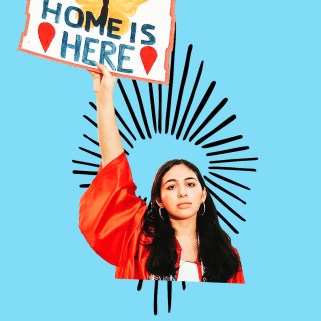
“I felt trapped because of something that I couldn’t control.”
Karla Mercado Dorado
Age: 19
Country of origin: Bolivia
Lives in: Virginia
Education: Asked for it not to be disclosed
Date of DACA application: December 2020
Application status: Pending
I left Bolivia when I was 2 years old. Everything that I know about my family in Bolivia has been solely through phone calls, and my parents telling me stories. Because I came at such a young age, this is really the only home that I’ve known.
Whenever we were on the road and there were police around us, everything got a little more tense. “Why were we scared of the police if we didn’t do anything wrong?” There was always that fear. I had friends in school who would talk about how they went to California or to a different country. I remember all of the quinceañeras who would go on cruises to celebrate their 15th birthday, but that was never an option for me because of my status. I felt a little bit ashamed.
As I got older, there were more and more limitations on what we could do legally, where we could go, how much of ourselves we were allowed to present and share. It felt very suffocating. I was trapped because of something that I couldn’t control. When you’re starting to have more independence and autonomy, I was missing out.
In elementary school, I remember telling my parents that I wasn’t going to let them pay a single cent for college, that I was going to go on a full ride. But when I actually started looking for scholarships, I realized how few of them were actually available to me as an undocumented student. I can’t apply for federal aid and the majority of scholarships are based on the Free Application for Federal Student Aid (FAFSA). A lot of schools I wanted to go to, were suddenly no longer an option. I wouldn’t be able to do this one thing that I’d been working toward since kindergarten and that my parents had instilled in me from the very beginning—the reason that they stayed in this country, instead of packing up and going back home. But I was able to find TheDream.US scholarship and that’s what saved me.
I learned about DACA around eighth grade. The eligibility requirements say that you have to be 15 in order to apply, but unfortunately, when I was turning that age, Trump entered office. Between then and September 2017 when he terminated the program, I wanted to apply but was afraid that my information would be in the system under an administration that made it a goal to do as much as possible to hurt our community.
As soon as the memo reinstating DACA came out [in December], it was all hands on deck. The cost didn’t even matter. We figured it’s now or never. When a protection or any sort of hopeful legislation is announced, you have to act right away because you never know what’s going to happen.
We’re tired of having just a little piece of hope: You’re going to get protected, but only for this amount of time. Every two years, we have to keep justifying our right to live normally the way we’ve been living this entire time. We have our own lives and our own stories and families and things that we want to accomplish. We’re really just trying to make a living and be happy like everyone else.

“It’s emotionally draining to try so hard and feel like you’re not getting anywhere because of your status.”
Lucero Miranda
Age: 19
Country of origin: Mexico
Place of residency: Phoenix, Arizona
Education: Washington High School
Date of DACA application: February 2021
Application status: Approved
My mom, my uncle, and I moved to the United States when I was three. I was a victim of a crime and that really traumatized me at a young age. I would always wake up crying at night and had to go see therapists. I became eligible to apply for a U visa for victims of crimes but my parents wanted me to grow up without having to deal with my past following me around, so we decided not to do anything about that at the time. It was only later that we got lawyer and sent all my information, paperwork, and police reports to immigration. I’ve been waiting for five years and I’m still hoping that by the end of this year I can get a visa, and then after three years become a permanent resident.
When DACA came along, I wasn’t old enough to apply. Then, when I became eligible, the program wasn’t taking any more applications. Not having a social security number and not being able to be on DACA closed so many doors. My senior year, my classmates were all applying for scholarships, and I just sat down watching, trying to hold back my tears. I felt really rejected because I didn’t have a chance to show my parents what I’m capable of doing.
I really wanted to go to Mexico to see my grandparents. It made me upset knowing that if I decided to leave the United States, I wouldn’t be able to come back.
Once DACA was able to accept students again, my parents did everything they could to make sure that I had the chance to be part of the Dreamers. Because I already had a process with immigration, that may be why I didn’t have any issues and got approved really fast. It makes me feel safe and confident. I want to get an associate’s degree from Glendale Community College and then go to Grand Canyon University.
It’s emotionally draining to try so hard and feel like you’re not getting anywhere because of your status. But one day you wake up, and you have everything that you planned and wished for, and you realize no one was able to stop you.
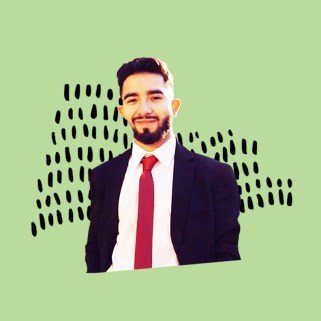
“DACA is the floor, not the ceiling.”
Dylan Ruiz
Age: 19
Lives in: Oklahoma City, Oklahoma
Country of origin: Mexico
Education: Industrial and Systems Engineering at University of Oklahoma
Date of DACA application: June 2021
Application status: Pending
I was just turning 2 years old when I came to the United States. I grew up in the south side of Oklahoma City, which has been historically a marginalized community. In a red state like Oklahoma, my family and I have faced racism and stereotypes. We often hear on news or social media the words wetback, beaner, terrorists, sex traffickers. My classmates, who are also undocumented, and I started questioning who we were and what we wanted to represent in ourselves, aside from just being undocumented. We saw that we are more than that. We are students; we are also sons and daughters of families; we are athletes.
Growing up, my parents told me to be careful with policemen. Throughout high school, as soon as I saw a police car, I would be afraid: What do I say? How do I act? What rights do I have? If someone questioned my status, there would be nobody to protect me. I felt alone and afraid.
I was heavy into martial arts, and I read a lot about Bruce Lee. One of the things that he talks about is that he doesn’t see himself as Asian American, but as a human being. When I read that, it allowed me to develop my sense of character and identity. I still see myself as an American because I’ve been here all my life—I have lived the American life.
When I was about to turn in all my paperwork, Trump annulled DACA. I was three days away from my last appointment and my DACA would have been in process. I remember my parents crying and being very silent. It was like their dreams for me were thrown into the trash. So when DACA was brought back in, we started being hopeful about our future with these opportunities.
As a first generation student, going to college was not just my dream, it was also my parents’ dream. When I got accepted into college, they hosted a little party at a restaurant. It was a huge accomplishment, not just for myself, but also for my family, because that’s the reason why they crossed the border. DACA is not the end all be all, it’s the beginning. We say that DACA is the floor, not the ceiling. Citizenship is the ultimate goal. We know it’s not something that can be handed to us. We’re more than willing to work hard for it.
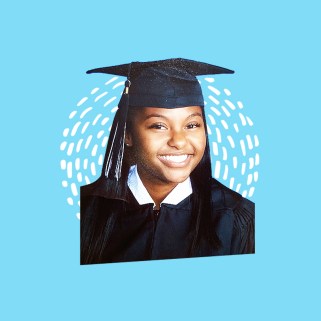
“We all have dreams and hopes and aspirations we want to accomplish.”
Melina Batista
Age: 18
Lives in: New York City
Country of origin: Dominican Republic
Education: Criminology at SUNY Old Westbury
Date of DACA application: December 2020
Application status: Approved
I came to the United States when I was only 4 years old, so I don’t really remember much from the Dominican Republic. I always knew how hard it was for my family that was still in the DR. I felt like even though I couldn’t do certain things, I was still better off here.
When I started high school in 2016, I remember telling my mother that I wanted to get a job at the mall, and she explained to me why I couldn’t work there. That was when I started to realize what my status was and how different I was from everybody around me. Everybody already has a hard time finding themselves in high school, but now I had this new set of issues to deal with. I felt like I had to keep it to myself because people wouldn’t understand.
Every summer, I would hear my friends talk about what they did, and teachers would make us write essays. Everybody would say, “Oh, I went to this place, I traveled over here, I did this.” For me, I always stayed here in New York. I couldn’t leave and it was hard to explain why.
During my senior year in high school, I was making plans for my future and applying to college just like everybody else. The very first thing that got in the way was that I needed to pay an application fee. You can get a fee waiver, but without having a social security number, I couldn’t do that. When I did get accepted into colleges, I couldn’t get any government help. For a while, I was just thinking there was no way that I could go to college. Through the José Peralta New York State Dream Act, I was able to apply for aid, but it wasn’t enough so my family had to help me.
As soon as I heard that we could apply for DACA again, I jumped into the opportunity. Personally, it changes everything for me, because DACA is literally what I stand on. It’s the only way that I can get a job and pursue my dreams of becoming a lawyer. I can get a car, and help my family move around. It’s basically a lifesaver. It takes away all that anxiety and the emotional wreckage that comes with not having the temporary security that I have now.
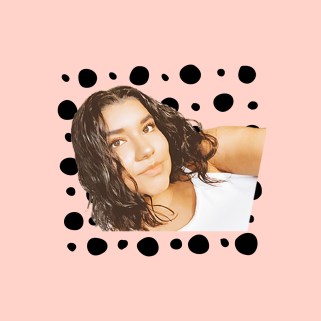
“It was like living a double life while I was growing up.”
Miranda Lovaas
Age: 25
Lives in: Sioux Falls, South Dakota
Country of origin: Mexico
Education: Washington High School
Date of DACA application: December 2020
Application status: Approved
My dad had been working in construction in Utah and when he moved to South Dakota it was kind of rough on my mom because she would hardly get to see him. When I was 7, she decided to move with my sister and me. I wasn’t able to say goodbye to any of my friends or family in Mexico. We had to literally bag up all of our things, all of our toys, and we just gave it away to everyone we knew. We took what we could fit in one suitcase.
In Mexico, we had such a huge family and I would have these big birthday parties. We didn’t really know anybody here besides the people my dad worked with, so it was a big culture shock. That first year was really lonely. It snows a lot here to the point where you can’t really leave the house, so we couldn’t go anywhere. It took my parents many years to even think about traveling other places. It took me almost graduating middle school for them to take us to the mall. My friends would start getting cars and licenses and jobs, but I was unable to do those things. My mom always made me think that being undocumented was this huge secret that I must keep—it was like living a double life while I was growing up.
When DACA came out in 2012, I had actually printed out the whole application and I filled it all out, but my mom talked me out of doing it because she didn’t trust it. So I didn’t apply the first time. When we heard in December that DACA was going to be available again, my sister and I both applied without a lawyer. We went for it as fast as we possibly could, getting all the evidence and dissecting every bit of our lives.
I think I bawled for two hours straight when I was approved. I was excited, but also feeling survivor’s guilt. For so many people, it’s too late to make a difference for their lives, whether they’ve already been deported, whether they have died in this country while being undocumented, whether they would have been able to apply and gotten approved, but maybe they got arrested and now that hurts their chances.
It took me being 25 for this to happen. It makes me sad for the 16-year-old me who had to lie to her friends about why she couldn’t do this, why she couldn’t do that. It makes me sad for the 18-year-old me who was petrified at the thought of becoming an adult and still not having legal documents. I can’t tell you how many nights I stayed up as a kid just hoping that something would give before I became a legal adult, and of course it didn’t.
But I’m glad that it’s happening now, and that there are people pushing for more. Getting DACA is pretty much the bar, it’s the minimum. It’s a very flimsy program. But nonetheless, it does help me sleep at night knowing that I don’t have to worry about ICE, and my husband getting pulled over with me in the car. I don’t have to worry about walking with my girls and getting questioned by the police. Now I can be here.
These interviews have been edited for length and clarity.
